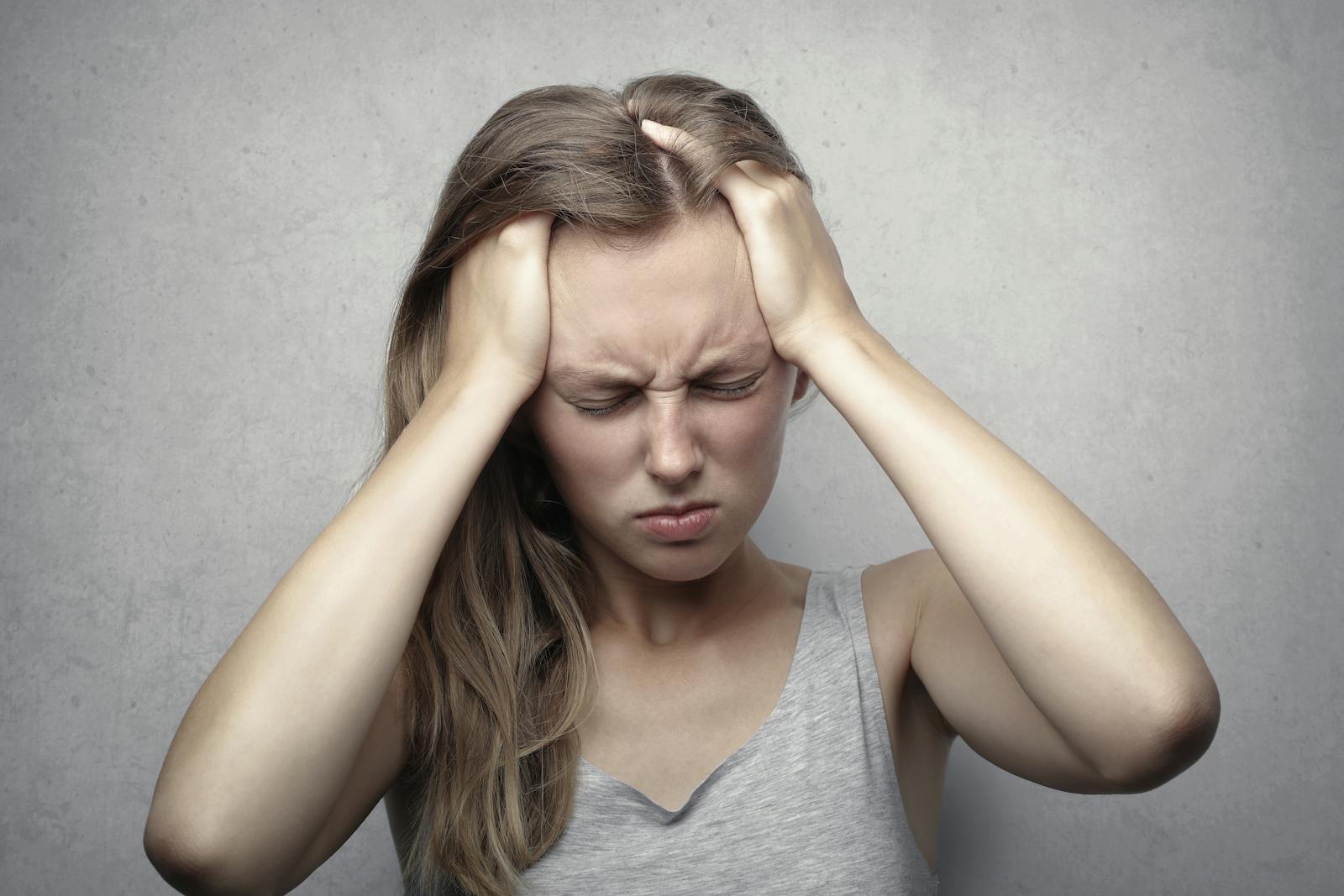Introduction to Depression
Depression is one of the most common mental disorders, yet it often hides behind a veil of silence. Characterized by persistent feelings of sadness, hopelessness, and a lack of interest in activities once enjoyed, it can disrupt every aspect of a person’s life—from personal relationships to professional ambitions. If this sounds familiar, know that depression is not a personal failure, and most importantly, help is within reach.
Whether it manifests as major depression, moderate depression, or premenstrual dysphoric disorder, seeking professional mental health treatment is the essential first step to regaining control. Getting depression diagnosed through professional evaluation is crucial, as healthcare providers can determine the presence of depression and rule out other conditions.
Depression counseling empowers individuals to address the root causes, manage physical symptoms such as fatigue and weight gain, and transform negative thinking patterns. Through therapy, moderate depression can become manageable, and severe symptoms can ease with time and the right approach. Professional counseling provides the necessary support and guidance to manage depressive symptoms and facilitate recovery.
This blog will explore how therapy can transform your life, discussing different types of depressive disorders, therapy modalities, and practical tips to help you find the support you deserve.

Understanding Depressive Disorders
Mental health disorders can vary widely in their symptoms and impact, and depressive disorders are no exception.
Ready to Start Therapy?
Your healing journey can begin today. Fill out the form below to connect with a therapist who truly listens and understands.
A depressive episode is a specific period during which individuals experience significant symptoms of depression, severely impacting their daily life. Below, we’ll break down key terms and concepts to help you better understand what depression entails and how it can be diagnosed and treated.
Types of Depressive Disorders
Major Depressive Disorder (MDD)
Major depressive disorder, also known as clinical depression, is characterized by episodes of persistent sadness or depressed mood lasting at least two weeks. It often includes difficulty concentrating, suicidal thoughts, and physical symptoms such as fatigue or disrupted sleep.
Persistent Depressive Disorder (PDD)
Known as dysthymia, PDD is a form of chronic depression that spans several years. The symptoms may not be as intense as major depression, but they endure, making emotional and physical health difficult to maintain over time.
Premenstrual Dysphoric Disorder (PMDD)
A severe form of premenstrual syndrome, PMDD brings pronounced mood swings, irritability, and physical discomfort tied to the menstrual cycle.
Bipolar Disorder
Bipolar disorder is a mood disorder that involves alternating episodes of depression and mania. These mood swings can be highly disruptive, affecting daily functioning and quality of life. Effective management of bipolar disorder often requires a combination of therapy and medication to stabilize mood and reduce the impact of these episodes.
Depression Caused by Secondary Factors
Conditions like thyroid disorders, substance use disorder, or chronic diseases can lead to major depressive episodes. Identifying these triggers during a depression diagnosis is a critical step to effective treatment.
Causes of Depression
Understanding why depression begins can make treatment more effective:
- Environmental Stressors: Life stressors like financial troubles or personal losses can increase vulnerability to depression. Environmental factors, such as one’s surroundings and life experiences, also play a crucial role in the development of depression by interacting with biological influences.
- Biological Factors: An imbalance in brain chemistry plays a significant role in the onset of depressive disorders.
- Health Conditions: Chronic diseases, hormonal fluctuations, or thyroid disorders may be underlying contributors to depressive episodes.

Treatment Options for Depression
When it comes to managing depression, there’s no one-size-fits-all solution. Comprehensive depression therapy and depression treatment plans are essential for addressing the complexity of depressive disorders.
These plans often include a combination of therapies, such as psychotherapy and medication, along with lifestyle changes tailored to individual needs. Here are some common treatment modalities:
Therapy Approaches
Cognitive Behavioral Therapy (CBT)
CBT is highly effective in treating depression by helping individuals identify patterns of negative thinking and reframe them into positive, actionable steps. It’s particularly helpful for those experiencing difficulty concentrating or self-critical thoughts.
Talk therapy, also known as psychotherapy, plays a crucial role in providing a supportive environment for individuals to explore their emotions, thoughts, and behaviors related to depression.
Dialectical Behavior Therapy (DBT)
Integrating mindfulness techniques with CBT, DBT is designed to help individuals manage intense emotions or relational difficulties. Dr. Mandelbaum’s unique expertise in DBT makes it a powerful option for his clients struggling with emotion regulation.
Psychodynamic Therapy
This approach explores how past experiences and unconscious thoughts influence current behaviors, helping individuals overcome their long-standing struggles.
Interpersonal Therapy (IPT)
For those whose depressive episodes result from strained relationships, IPT provides tools to improve communication skills and rebuild connections.
Brain Stimulation Therapies
For treatment-resistant depression, more intensive options such as electroconvulsive therapy (ECT) or repetitive transcranial magnetic stimulation (rTMS) may be explored. These other brain stimulation therapies are used under close supervision by specialists and often function as a last resort for severe symptoms.
Antidepressant Medications
Antidepressant medication can play a critical role in treating depressive disorders and alleviating depressive symptoms. However, finding the right medication and dosage often requires collaboration with both a primary care doctor and a mental health professional.
Lifestyle Changes
Sometimes, shifts in lifestyle can have a profound impact on mental health. Simple interventions like engaging in regular physical activity, adopting a balanced diet, and prioritizing good sleep hygiene have been shown to ease depression symptoms and complement formal therapy sessions.
Additionally, addressing chronic pain is crucial, as it can exacerbate depressive symptoms. Effective treatment often requires managing both chronic conditions and mental health simultaneously.

Finding the Right Support
Navigating the maze of mental health treatment alone can feel overwhelming, but you don’t have to do it on your own. Finding a compassionate and qualified depression therapist is crucial for specialized support and personalized treatment plans.
Seeking professional counseling can aid in managing symptoms and facilitating recovery, reassuring you that you are not alone in your experiences. Here are practical steps you can take to find support and healing:
Partner with a Qualified Counselor
Working with an experienced therapist like Dr. Mandelbaum can make all the difference. With over 20 years of experience, he specializes in treating intelligent yet sensitive individuals facing major depressive episodes or other brain-based challenges.
Build Your Support Network
Support doesn’t only come from professionals. Family members, friends, and depression-focused support groups offer valuable connection and encouragement during the recovery process.
Leverage Online Resources
For those in need of flexible care, virtual therapy sessions allow access to licensed professionals, no matter where you live. Dr. Mandelbaum extends telepsychology services across 43 states, ensuring accessibility for his clients.

The Path to Recovery and Growth
Recovering from depression isn’t about “snapping out of it” or achieving an unattainable state of constant happiness. It’s about developing resilience, managing symptoms, and learning to lead a fulfilling life even when challenges arise.
Having depression treated through various methods such as psychotherapy and medication is crucial. Effective treatment is tailored to the individual’s needs and may involve trial and error.
By crafting a personalized treatment plan that may include cognitive therapy, lifestyle changes, and periodic therapy sessions, individuals can regain a sense of control and purpose. For some, this means addressing life stressors that exacerbate depressive episodes.
For others, it’s finding long-term solutions for managing chronic diseases or substance use disorder. Professional treatment plays a vital role in the recovery process, helping individuals to heal and regain a sense of joy and balance in life.
The key is to focus on progress rather than perfection. With patience, effort, and support, mental health improvement is entirely possible.

Conclusion
In conclusion, depression is a complex and multifaceted mental health condition that affects millions of people worldwide. Characterized by persistent feelings of sadness, hopelessness, and a lack of interest in activities, it can significantly impact daily life, relationships, and overall well-being.
Major depressive disorder, also known as clinical depression, is a severe form of depression that can be effectively treated with a combination of medication, therapy, and lifestyle changes.
Depression symptoms can vary widely from person to person. Common symptoms include changes in appetite, sleep patterns, and energy levels, as well as difficulty concentrating and making decisions. Severe depression can lead to suicidal thoughts and behaviors, making it essential to seek professional help if symptoms persist or worsen over time.
A mental health professional, such as a therapist or counselor, can help individuals develop a personalized treatment plan to manage depressive symptoms and improve their mental health. Interpersonal therapy, cognitive behavioral therapy, and psychodynamic therapy are all effective approaches to treating depression.
These therapies help individuals identify and change negative thought patterns and behaviors, fostering a path to recovery.
In addition to therapy, antidepressant medications can be crucial in treating depression, particularly in cases of severe or treatment-resistant depression. Brain stimulation therapies, such as repetitive transcranial magnetic stimulation (rTMS), offer additional options for those who have not found relief through other treatments.
It’s important to remember that depression is not a sign of weakness. Seeking help is a sign of strength and a critical step toward healing. With the right treatment and support, managing depressive symptoms and improving overall mental health is entirely possible. If you or someone you know is struggling with depression, seeking professional help from a trained mental health professional is crucial.
By prioritizing mental health and seeking help when needed, individuals can take the first step toward overcoming depression and improving their overall well-being. Depression is a treatable condition, and there is hope for healing and recovery. With the right treatment and support, individuals can learn to manage their symptoms, develop healthy coping mechanisms, and enhance their quality of life.
Approaching depression with compassion, understanding, and patience is essential. By working together with mental health professionals and prioritizing self-care, individuals can overcome depression and achieve a happier, healthier life. If you are struggling with depression, do not hesitate to reach out for help. Numerous resources, including therapy, support groups, and hotlines, are available to provide the support and guidance needed to manage symptoms and improve mental health.

Start Your Healing Journey with Dr. Mandelbaum
If you or someone close to you is navigating depression, there’s no need to face it alone. Dr. Matthew Mandelbaum offers compassionate, evidence-based care tailored to your unique needs.
Schedule a consultation today, and take the first step toward lasting emotional well-being and resilience.
Understanding Depression and Accessing Trusted Resources
Educating yourself about depression and accessing reliable information can be an essential step toward healing. Below is a list of credible resources to help you better understand and manage depression:
- National Institute of Mental Health (NIMH): Learn about depression, its symptoms, and treatment options at NIMH.
- Mayo Clinic: Explore detailed information on depression, including self-help strategies and available therapies.
- American Psychological Association (APA): Find evidence-based insights on depression and access tools for seeking professional care.
- Mental Health America (MHA): Access free screening tools and mental health resources tailored to your individual needs.
- National Suicide Prevention Lifeline: Reach out to this 24/7 confidential crisis hotline for immediate support and guidance.
- Anxiety and Depression Association of America (ADAA): Explore resources, support groups, and evidence-based strategies to manage anxiety and depression.
- Crisis Text Line: Text “HELLO” to 741741 to connect with a trained crisis counselor anytime for free support.
Taking advantage of these additional resources can further empower those affected by mental health challenges to seek the care and support they need. Each step toward understanding and addressing these concerns contributes to the well-being of individuals and communities alike.


